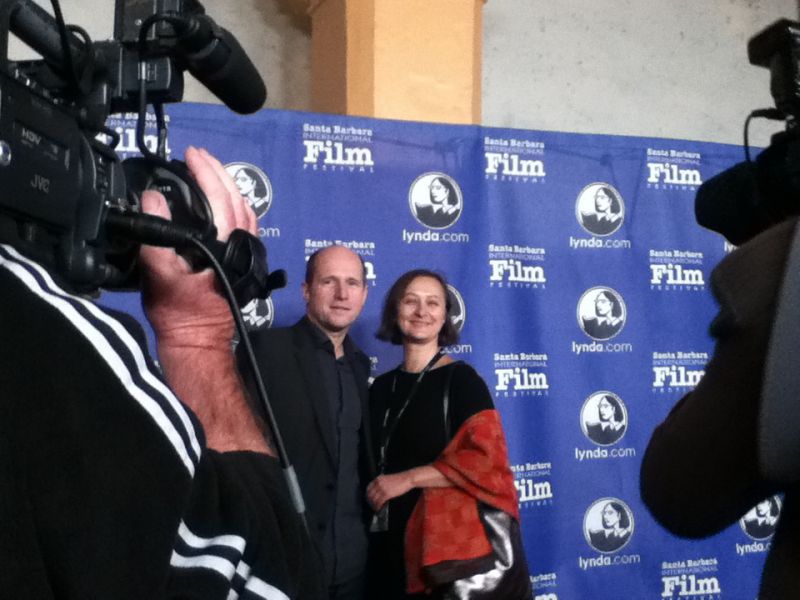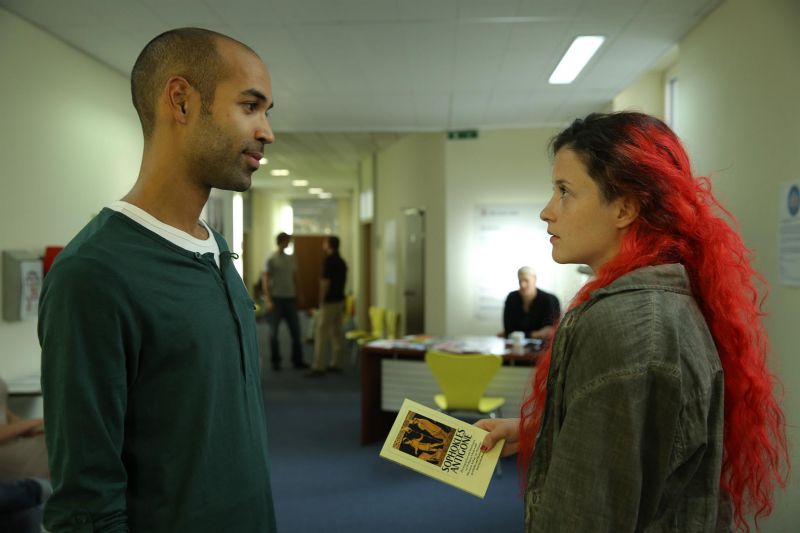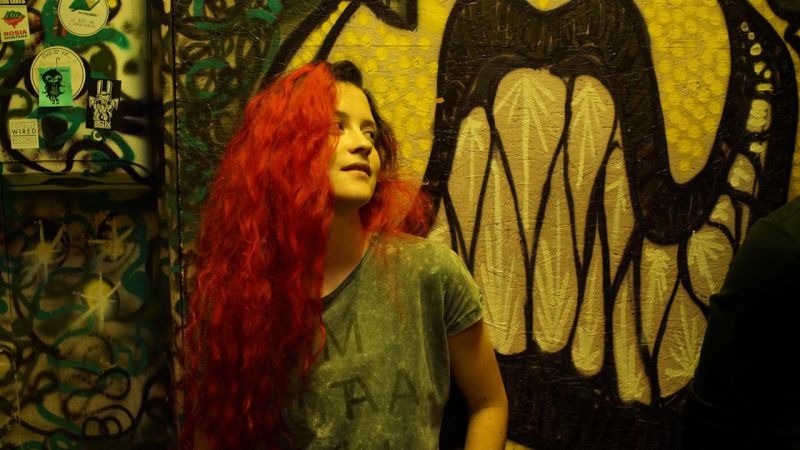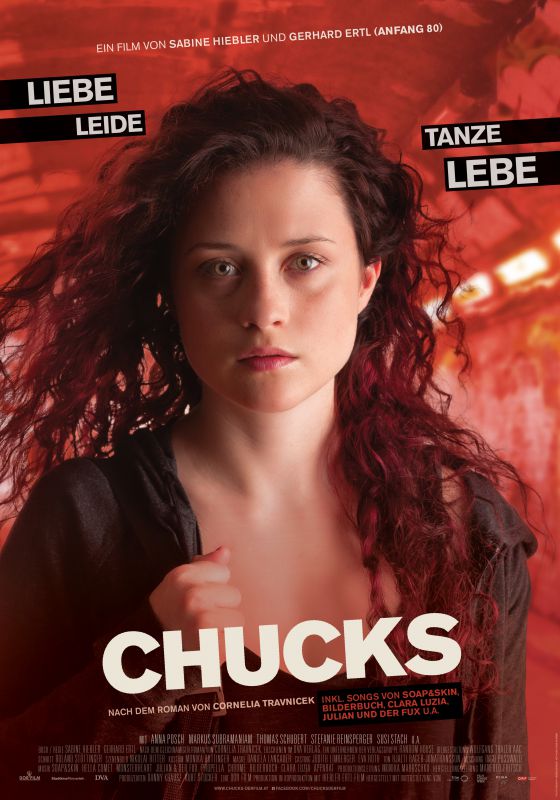|
|
||
|
Pro Tools
FILMFESTIVALS | 24/7 world wide coverageWelcome ! Enjoy the best of both worlds: Film & Festival News, exploring the best of the film festivals community. Launched in 1995, relentlessly connecting films to festivals, documenting and promoting festivals worldwide. Working on an upgrade soon. For collaboration, editorial contributions, or publicity, please send us an email here. User login |
A Conversation with Sabine Hiebler and Gerhard Ertl, Chucks directors
What fascinated you about the book CHUCKS? When we first read CHUCKS by Cornelia Travnicek, we were amazed at how many parallels this novel had with our film “Coming of Age”. CHUCKS, too, is about love and death – a thematic combination we simply cannot turn down – and about the overwhelming emotions involved. Both are love dramas in which the characters grow to meet the challenges they are faced with: The female protagonist breaks conventions and in this way clashes with society and institutions in search of “her” own path. Both films are love stories at the fringes of adult life, only that CHUCKS is at the opposite end of the age spectrum. It was a stimulating challenge for us to address similar themes from this other, young perspective. Adolescents these days are under enormous pressure. We asked ourselves: How does it feel as a teenager growing up today and trying to find your place in society? What is it like when social acceleration doesn’t leave time for personal crises? When there is virtually no place anymore for “non-profit-oriented” values? When just functioning in society’s treadmill becomes the ultimate goal – and youth, puberty, adolescence a glitch? All this sets the scene for our heroine’s story. At the same time we wanted to have the plot take place completely in the emotional world of our characters: How do they overcome the challenges and difficulties arising along their paths?
As a rebellious teenager Mae doesn’t exactly make life easy for her mother. As parents how do you view this constellation? It’s not a child’s task to make life easy for his or her parents. But it’s true: Her mother has been given a difficult lot fraught with crises and she has her hands full trying to deal with her own problems. Mae’s family falls apart just when she would have most needed its support. The great thing about Mae is that she never gives up searching for her own path and trying to cope. And all the while she is contrary, rebellious, and clashes with her environment – but she trusts her convictions and doesn’t let herself be misled by conventions, prejudices, and restrictions.
How would you describe your process of writing a screenplay? Very discursive: First we work out the structure and sequence of scenes and in doing so define quite precisely what each individual scene should achieve in respect to the theme, story, and characters. That is the arduous part of the job, once that is done we start writing. That’s the more fun part: harvest time.
How did you find your actors? What was it that made them seem “right” to you? Casting was a long and very intensive process: lay actors, acting students, young actors ... From the short list what was crucial to us besides the qualities of the individuals was building an ensemble. For the female lead we looked for an actress who could in a credible and likeable way embody the character as fragile, vulnerable, and tender on the one hand, and as cocky and obstinate on the other. This role is very intensive. The whole story rides on this character and she appears in nearly every scene. That’s quite a task for a young, relatively inexperienced actress and can be pretty daunting. Fortunately, Anna Posch took on the challenge. How was it working with the young actors? Young actors are naturally an enormous advantage when it comes to the authenticity and freshness of the scenes. It also helps, for example, if they don’t have to play the same thing thousands of times or have to be surprised at what is behind a door. We really just let them into the situation.
Was there a kind of visual concept you wanted to realize? “Hoveringly told – at times cocky, at times poetic“ – that’s how the novel was described and that’s how we wanted to direct the movie. For us it was fantastic that we were able to work with Wolfgang Thaler again. In “Coming of Age” Wolfgang’s hand-held camera had allowed us to develop a very direct, emotional bond to the characters and always be very close to the protagonists and the action. We wanted to establish the same sort of intimacy in CHUCKS, only – in keeping with the young setting – with a more fast-paced, “livelier” visual language. Wolfgang’s camera translates the rebellious protest of our heroine as well as the poetic, floating state of the lovers into direct, emotional images. During the course of the story Mae evolves from being a nonconformist antagonist to the protagonist of her own life. She becomes a young adult who finds her own language and outgrows the shoes that have always belonged to someone else. Parallel to this development the rhythm of the film also grows calmer and more stable.
Did you plan all along to use already existing music? What were your selection criteria? The idea to use already existing music for CHUCKS emerged gradually over time. In Austria the music scene is currently incredibly alive and diverse. From the beginning our idea was to associate strong female voices with the strong female figure of the main character. And we found these voices in Anja Plaschg, Clara Luzia, Monsterheart, and Propella. Since CHUCKS is set in the young scene and a lot of the action takes place in clubs or shared apartments, there is plenty of room and lots of opportunities for music. In the end we were able to present a fantastic sample of the current Austrian music scene. In addition to the abovementioned artists the sound track also spans the spectrum from Bilderbuch to Julian & der Fux and Hella Comet to Camo & Krooked. 27.08.2015 | Dor Film's blog Cat. : PEOPLE
|
LinksThe Bulletin Board > The Bulletin Board Blog Following News Interview with EFM (Berlin) Director
Interview with IFTA Chairman (AFM)
Interview with Cannes Marche du Film Director
Filmfestivals.com dailies live coverage from > Live from India
Useful links for the indies: > Big files transfer
+ SUBSCRIBE to the weekly Newsletter Deals+ Special offers and discounts from filmfestivals.com Selected fun offers
> Bonus Casino
User imagesAbout Dor FilmFilm InformationThe EditorUser contributionsUser links |


















 ADOLESCENCE as A GLITCH
ADOLESCENCE as A GLITCH




 Ladenbauer Ulrike
Ladenbauer Ulrike 


